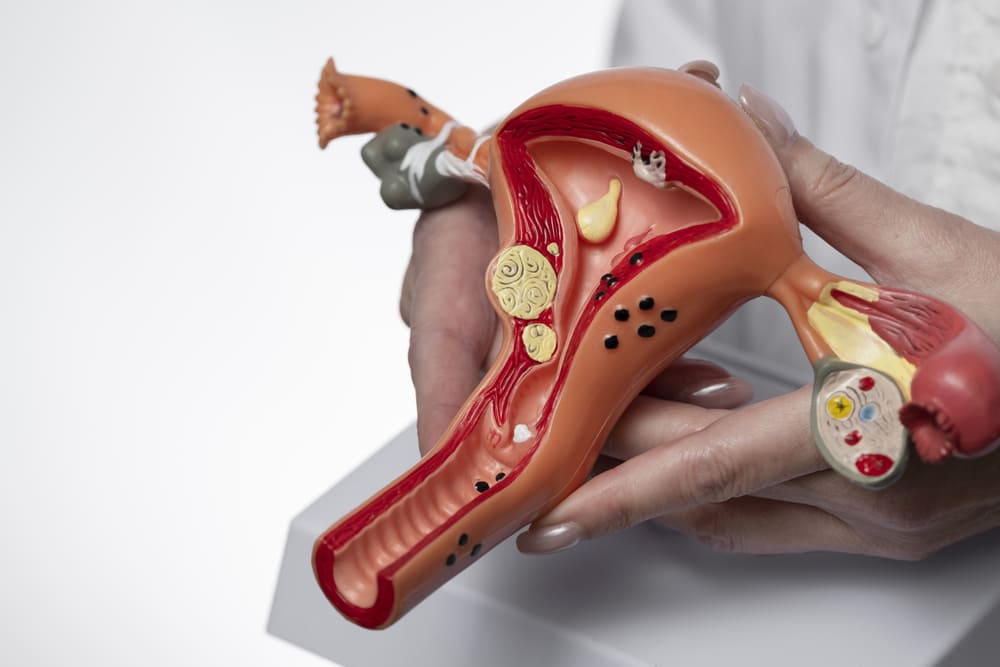Infertility is a condition that affects millions of people worldwide and can be due to a wide variety of factors. Among them, tubal factor infertility is one of the most common causes in women. This type of infertility occurs when the fallopian tubes are blocked, damaged, or absent, preventing the egg and sperm from meeting for fertilization. In this blog, we’ll explore the symptoms, causes, and treatment options for tubal factor infertility, as well as its relationship with other types such as uterine factor infertility, and how assisted reproductive treatment at an IVF clinic may be the right solution.
What is Tubal Factor Infertility?
Tubal factor infertility refers to difficulty achieving pregnancy due to problems in the fallopian tubes. These structures have the essential function of transporting the egg from the ovary to the uterus and are the site where fertilization occurs. If these tubes are blocked, inflamed, or absent, this process is interrupted, significantly reducing the chances of natural pregnancy.
Symptoms of Tubal Factor Infertility
One of the biggest challenges of this condition is that, in many cases, it doesn’t present noticeable symptoms. Many women don’t discover they have issues with their tubes until they try to conceive without success. However, some signs may include:
- Chronic pelvic pain.
- Irregular menstrual cycles.
- Previous ectopic pregnancies.
- Pain during intercourse.
Common Causes of Tubal Factor Infertility
There are various causes that can lead to tubal factor infertility:
- Pelvic infections or sexually transmitted diseases such as chlamydia or gonorrhea.
- Endometriosis.
- Previous abdominal or gynecological surgeries.
- Hydrosalpinx (fluid accumulation in the tubes).
- Complicated appendicitis.
- Pelvic adhesions or internal scarring.
Connection with Uterine Factor Infertility
Although tubal factor infertility is a cause on its own, it may often be present along with other types of infertility, such as uterine factor infertility. This type of infertility is due to abnormalities in the uterus that hinder embryo implantation or pregnancy development. Together, both conditions can complicate diagnosis and treatment, which is why it’s essential to go to a specialized clinic.
Diagnosing Tubal Factor Infertility
To diagnose this condition, a fertility specialist may use several tests:
- Hysterosalpingography (HSG): an X-ray of the uterus and fallopian tubes using contrast to detect blockages.
- Diagnostic laparoscopy: a minimally invasive surgical procedure that allows direct observation of the tubes.
- Transvaginal ultrasound.
- Hormonal testing and additional bloodwork.
Treatments for Tubal Factor Infertility
Surgery to Restore Tubal Function
In some cases, when the damage is not severe, surgery can be performed to repair the tubes. However, this option depends on the extent of the damage and factors such as age and reproductive history.
Assisted Reproductive Treatment
When surgery is not viable or has not been effective, assisted reproductive treatment is the most recommended alternative. At an IVF clinic, in vitro fertilization (IVF) allows eggs to be fertilized outside the body and the embryo to be transferred directly into the uterus, bypassing the need for functional tubes.
Egg Donation
If, in addition to tubal factor infertility, there is also low ovarian reserve or compromised egg quality, egg donation may be an option. This alternative, available in many IVF clinics, significantly increases success rates.
Emotional Considerations and Support
The diagnosis of tubal factor infertility can be emotionally challenging. It’s important to have psychological and emotional support throughout the process. Many fertility clinics have multidisciplinary teams that offer emotional support, legal advice, and comprehensive guidance.
When to Visit a Fertility Clinic?
It’s recommended to visit a fertility clinic if:
- You’ve been trying to get pregnant for more than a year without success (or 6 months if you’re over 35).
- You’ve had ectopic pregnancies.
- You have a history of pelvic diseases or abdominal surgeries.
- You have irregular or painful menstrual cycles.
Conclusion
Tubal factor infertility represents a significant obstacle for many women, but with proper diagnosis and the right treatment, pregnancy is possible. Thanks to advancements in assisted reproductive treatment, such as IVF, and the work of a specialized IVF clinic, the chances of having a child are real.If you suspect that you may be facing tubal factor infertility or uterine factor infertility, don’t hesitate to seek professional help. At Ingenes, we have expert physicians, cutting-edge technology, and a comprehensive approach that puts your dreams at the center of our work. Schedule an appointment today and take the first step toward the family you want to build.

